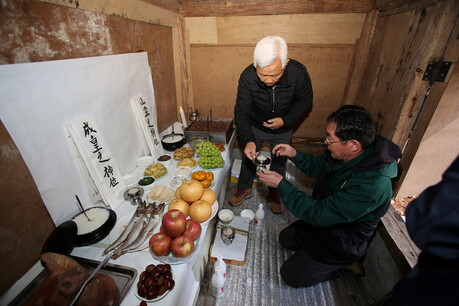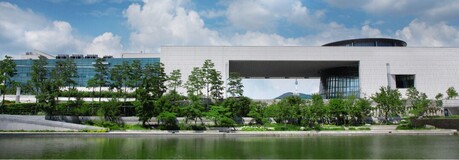Nigerian architect Tosin Oshinowo is challenging conventional approaches to urban development in Africa, arguing that traditional market systems offer more sustainable and economically viable solutions than Western models. Her latest research project exploring Lagos' markets was unveiled at this year's Venice Architecture Biennale, where it received special recognition at the Golden Lions award ceremony.
Oshinowo, who founded the Lagos-based Oshinowo Studio, believes that current Western models of urban development fail to consider the specific economic and environmental conditions of Lagos and other African cities. She contends that African cities should look inward rather than to the West for context-specific solutions to urban challenges. "One of the biggest challenges that the African continent has is that the model of progress that we are trying to emulate is one that we cannot economically sustain," Oshinowo explained.
The architect points out that modern commercial developments such as shopping malls and retail centers have not proven successful in West Africa. "A lot of the supposed types of developments that do come with modernity for commercial activity have not really worked in West Africa," she noted. "These situations are very different to the conditions that have allowed European or Global North cities to develop."
Instead, Oshinowo advocates for examining existing traditional models that have demonstrated consistency and sustainability as sources of economic and social activity. Lagos markets, operating in a traditional bottom-up format, exemplify such models that could be applied to urban development. However, these markets are often dismissed as "informal" spaces when compared to Western development models, causing them to be overlooked as valuable sources of knowledge.
Oshinowo's research culminated in the exhibition "Alternative Urbanism: The Self-Organized Markets of Lagos," which was displayed at the Venice Architecture Biennale under curator Carlo Ratti's theme of "Intelligens Natural Artificial Collective." The exhibition documents three specialized Lagos markets through film, photography, and data, highlighting the sustainable and circular approach to consumerism present across these marketplaces.
The three markets featured in the research are the Computer Village market, the Katangua Cloth market, and the Ladipo Automobile market. According to Oshinowo, these markets function essentially as factories, repurposing waste products or "source materials" from the Global North into goods through a circular approach that should be more widely adopted. "Through a process of adaptation in these markets, they're able to take source materials and reappropriate them through a factory system to become desirable products," she explained.
This approach offers a counter-narrative to what Oshinowo describes as our "hyper-consumerist reality." She notes that "in a hyper-consumerist reality that we live in today, where redundancy is now built into products, what actually happens at the other end of capitalism in a lot of African cities is this re-adaptation." This process questions the prevailing model of capitalism where products are designed with built-in obsolescence of just two years.
The circular approach also provides significant advantages in addressing the global climate crisis. In 2023, Nigeria, Africa's most populous country, accounted for only 0.3 percent of global carbon emissions, while the entire African continent contributed just 3.7 percent, according to the International Energy Agency. With Africa currently home to 18 percent of the world's population yet contributing minimally to climate challenges, Oshinowo believes the continent has an important role to play on a global scale.
"We are finding interesting ways of dealing with some of our very urgent global challenges," Oshinowo stated. "What happens on the continent is equally important as what happens anywhere else. We do have something of value to contribute because we are existing, we are contributing very little carbon, and we have systems that work."
While Oshinowo's research focuses specifically on Lagos and other African cities, she suggests that this tradition-oriented approach could encourage more innovative approaches to urban development beyond the continent. "It's not a direct solution that can be transferred across because the parameters are different, but I do think that there are possibilities of applicability in other regions," she explained. "If other locations start to think about the city differently, I think that we'd be much better positioned to start to propose solutions."
Looking ahead, Oshinowo hopes her research will inspire practitioners in Lagos and other African cities to build upon existing continental systems for tailored solutions. "This research is really at the beginning of what will be an expansive mapping exercise, but I do hope that what comes out of this is an understanding that the solution that we need for Africa will be homegrown from Africa," she concluded. Her work represents a call for African cities to embrace their traditional systems as models of progress rather than attempting to replicate Western development approaches that may not suit their unique contexts.





























